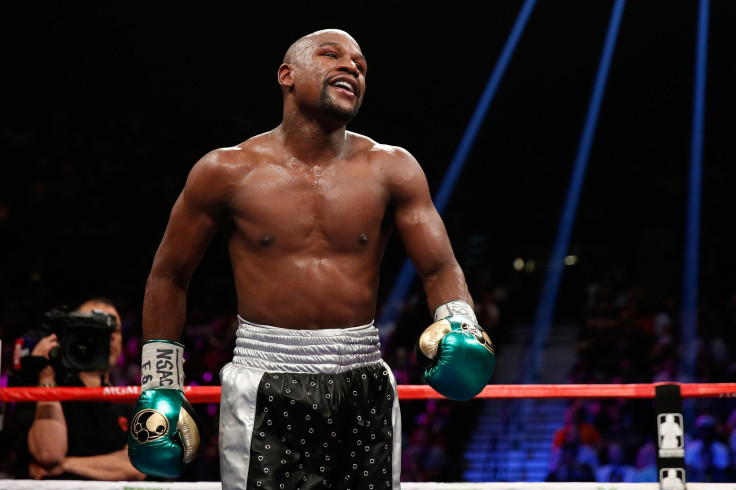Floyd Mayweather Reveals If He'll Have Sex Before Conor McGregor Fight

Boxing champion Floyd Mayweather Jr., who stands to make a record-breaking $390 million from his forthcoming fight against Conor McGregor, apparently will do whatever it takes to win the fight — even it means abstaining from sex.
Mayweather talked about his abstinence plans ahead of his August 26 bout with the UFC champion. When TMZ asked if he would give up sex, he responded with a simple "absolutely."
Floyd Mayweather talks sex before the big fight. And its all in 360. Take a look around! #TMZ pic.twitter.com/7dmMjWhYdR
— TMZ (@TMZ) August 21, 2017
The question perhaps derived from an old boxing superstition that suggested having sexual intercourse before a fight could weaken a fighter. Fictional boxing trainer Mickey Goldmill told Rocky Balboa in the film "Rocky" that "women weaken legs."
Mayweather may follow through with his plans for abstinence, but not everyone believes in superstitions. In a 2015 interview on "Conon," host Conon O’Brien asked McGregor about his pre-fight rituals, to which he responded, "I definitely have as much sex as possible."
The idea that sexual intercourse could weaken a fighter’s strength has been around since ancient Greece, according to a 2016 study released by Frontiers in Physiology. Trainers asked Olympians to refrain from having sex before their competitions because they associated ejaculation with testosterone loss.
"In ancient times, abstinence was considered the best method to ensure athletic performance and communion between body and spirit," the report read. "Roman and Greek educators believed that great sacrifices could sustain success."
A 2016 review released by Frontiers in Physiology studied the effects that sexual intercourse had on men before a competition. The Frontiers in Physiology report concluded that there was no concrete evidence that sex could weaken a man before a contest.
"From the present review, doubts remain regarding the possible negative impact of sexual activity the night before competition," the report read. "This aspect is considered important in sports, but there is insufficient evidence of the possible specific detrimental effect on the sports performance."
The report continued, "In addition, no exhaustive data are available about the possible impact of the sexual activity on different kinds of sports, in terms of endurance or resistance performance, or in terms of team or individual sports."
The report said that there had been little solid research on the topic. Given the diverse nature of sports as well as metabolic and situational differences, an absolute conclusion is nearly impossible to determine. Most tests conducted were done on male subjects. But based on the growing number of women entering sports, it’s unclear whether tests based on gender differences could be determined.
Such ideologies have ceased among contemporary athletes and trainers. Last year, the Olympics handed out about 450,000 condoms to their participants, an uptick from the 300,000 they gave during the 2012 London games.
© Copyright IBTimes 2024. All rights reserved.











